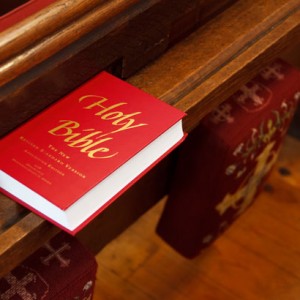 BOSTON, Mass. — Four churches in Massachusetts have filed a legal challenge against a new state law requiring the allowance of men who identify as women to use womens’ restrooms and vice versa, contending that they should be exempt from the mandate under the First Amendment.
BOSTON, Mass. — Four churches in Massachusetts have filed a legal challenge against a new state law requiring the allowance of men who identify as women to use womens’ restrooms and vice versa, contending that they should be exempt from the mandate under the First Amendment.
Horizon Christian Fellowship in Fitchburg, Abundant Life Church in Swansea, House of Destiny Ministries in Southbridge and Faith Christian Fellowship in Haverhill are all a part of the suit, filed on Tuesday against the Massachusetts Commission Against Discrimination and Attorney General Maura Healey.
According to reports, the Commission recently released guidelines about compliance with the new public restroom rules, which were signed into law by Gov. Charlie Baker in July and went into effect on Oct. 1.
“[E]ven a church could be seen as a place of public accommodation if it holds a secular event, such as a spaghetti supper, that is open to the general public,” the Commission wrote.
Healey has also stated that the law could apply to churches in certain instances.
But the religious liberties organization Alliance Defending Freedom (ADF), which is representing the congregations in court, says that it is wrong for the government to decide what churches can and cannot do on their property.
“The legislature and MCAD failed to provide an exemption for religious institutions, nor did MCAD attempt to define the ‘secular activities’ that it believed might subject a church to the Act, other than the woefully inadequate and confusing ‘spaghetti supper’ test,” it wrote in its legal complaint. “Indeed, MCAD expressly stated that it would not provide an objective standard, but would review a charge ‘involving religious institutions or religious exemptions…on a case-by-case-basis.'”
“Thus, a pastor, other church leader, or a court must guess as to which of the church’s activities subject it to the severe sanctions of the Act, which include fines of $50,000 per violation, up to 365 days in jail, and attorneys’ fees,” ADF said.
The law additionally bans places of public accommodation from making statements with the intent “to discriminate” or to “incite” others to be discriminatory, which ADF says could affect Sunday sermons.
“The government shouldn’t encroach on the internal, religious practices of a church,” said ADF Senior Counsel Steve O’Ban. “Neither the commission nor the attorney general has the constitutional authority to dictate how any church uses its facility or what public statements a church can make concerning a deeply held religious belief, such as on human sexuality.”
“All events held at a church on its property have a religious purpose, and the government has no authority to violate the First Amendment’s guarantees of freedom of religion and speech,” also remarked ADF Legal Counsel Christiana Holcomb. “Government officials have no business determining which church activities are religious and which ones aren’t.”
While Healey’s office has not commented specifically on the suit, spokeswoman Jillian Fennimore issued a statement applauding the new law.
“We are pleased that we finally have a law in place that protects transgender people from discrimination in public places,” she said. “This law is about civil rights and is critical for people who were without full protection and equality under the law for too long.”
ADF is seeking an injunction against the enforcement of the statute while the case moves forward in court.
Become a Christian News Network Supporter...


